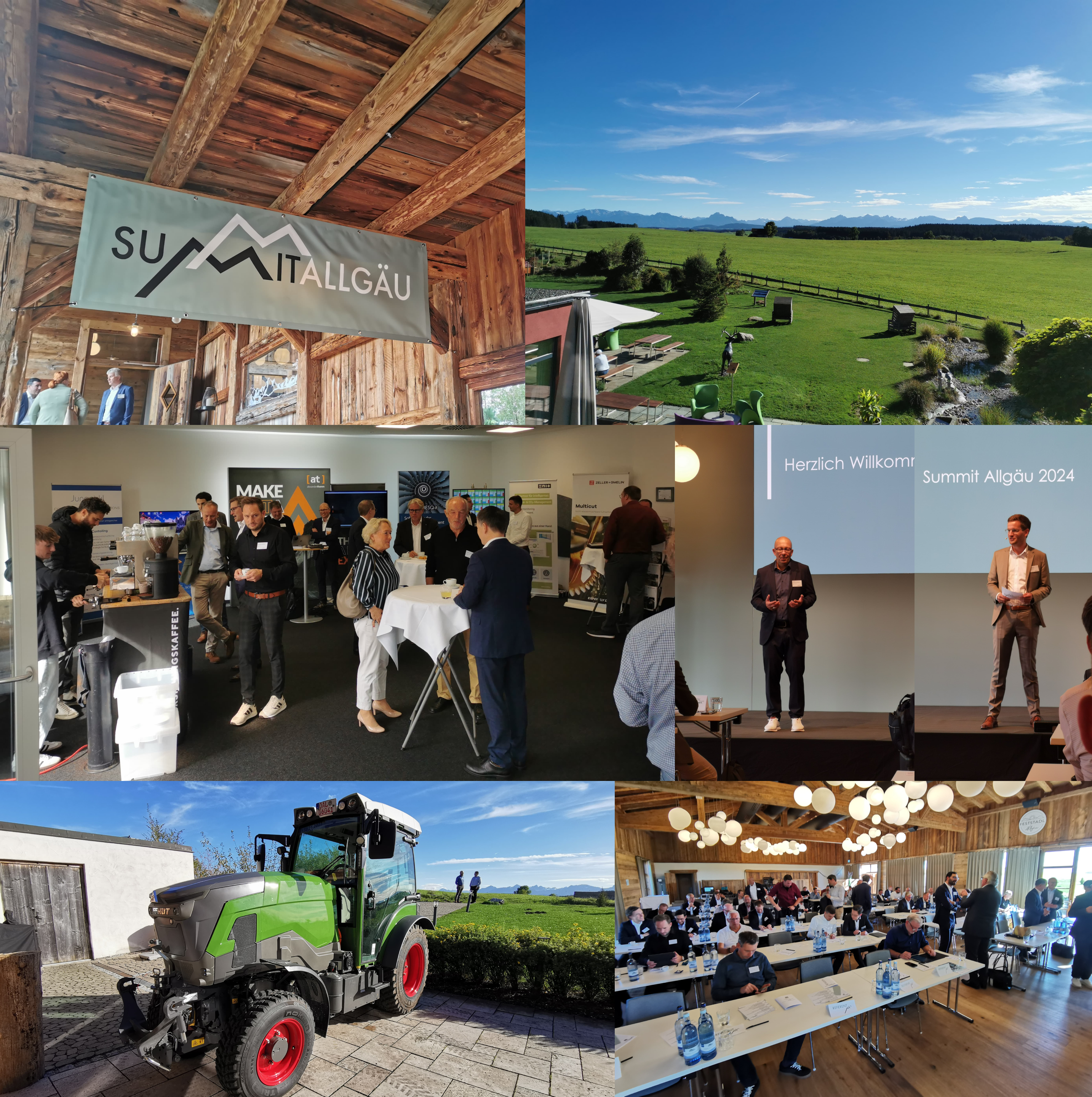Experience Report: Production Summit Allgäu 2024 – Shaping the Future of Production
The Production Summit Allgäu 2024 impressively demonstrated that the German industry is on the verge of a profound transformation. The key themes of the summit—digitalization, automation, global competition, and the need for flexible production systems—highlight how urgently a shift in production thinking is required. It wasn’t just about technological innovations but also fundamental strategic and societal questions that will shape the success of the industry in the coming years.

1. Digitalization as a Key Factor for Efficiency and Competitiveness
A recurring theme at the event was the digital transformation in production. Carlos Carranza (CEO PFEIFER Group) put it succinctly: companies must realize that digital transformation not only requires time and money but also a cultural shift. It’s not just about implementing new technologies but also about standardizing processes to simultaneously increase flexibility and efficiency.
Many companies claim "we are different," but according to Carranza, this is rarely true. Instead of relying on highly flexible systems, companies should focus more on pre-defined processes that allow them to react faster to market changes. In practice, this means using digital solutions like S4Hana as the backbone of production processes, complemented by specialized tools such as MES (Manufacturing Execution Systems) to further optimize processes. The benefits of these approaches were highlighted with impressive numbers: a significantly improved on-time delivery rate and a substantial reduction in order lead time.
2. Automation – From Humans to Machines
Automation was another central topic of the summit. Companies like HAWE [https://www.hawe.com/de-de/] and Swoboda presented impressive advances in the automation of production processes, even in areas with extensive product variety. Wolfgang Socher from HAWE made it clear: the question is no longer if, but when full automation will take over in production. With 1 million variants and batch sizes ranging from 1 to 50, HAWE already relies on high levels of automation that allow for flexible and cost-efficient production.
Swoboda demonstrated its approach of "First Robert, then Robot," showing that automation progresses in stages. The transition from human employees to robot support in production is continuously optimized, ultimately aiming for fully automated plants.
This rapid development reinforced the idea that the roles and responsibilities of factory employees will significantly change in the future—from repetitive tasks to becoming active decision-makers and problem solvers in a flexible production environment.
3. Global Competition: The Challenges from Asia and the USA
A constantly present topic at the summit was international competition, particularly the pressure from China. As Karl Haeusgen (President of the VDMA) emphasized, the Chinese machinery industry is no longer just a low-cost competitor but is increasingly evolving into a global leader in production technology. German machinery manufacturers are facing the reality that battery and chip factories around the world are increasingly being equipped without European machines—China’s technological progress is impressive.
Haeusgen also warned that the protectionist stance on international trade agreements, especially in the USA, could lead to a new paradigm of "managed trade," where local production is favored to bypass trade barriers. For export-oriented German SMEs, this is a dangerous development, as they cannot relocate their production globally as large corporations might. Particularly for companies that rely heavily on exports, such as the machinery sector, this presents a serious threat.
4. Flexibility as a Survival Strategy
Flexibility in production systems was introduced by Fendt as a key strategy to meet the challenges of the global market and evolving technologies. Fendt impressively demonstrated how they designed their production systems to manufacture both conventional and electric tractors. This symbiotic production is a prime example of how companies must adapt to new market demands. In a time when revenue declines are projected, flexibility remains one of the few effective responses to uncertainty and volatile market conditions.
5. Challenges Due to Societal Changes
In addition to technological and economic issues, societal topics also took center stage. Haeusgen addressed another significant obstacle: the complacency of German society. Issues like extending working hours and lifetime employment are barely being discussed, despite their importance for the long-term competitiveness of the economy. At the same time, there remains a lack of a welcoming culture for foreign professionals—a major issue given the current shortage of skilled workers.
These societal challenges are just as crucial as the technological ones. Without adjustments to the working environment and attitudes toward new workers, it will be difficult to maintain the innovative strength of German industry.
At this point, I wonder whether it’s really worth debating about five more or fewer working hours per week, or if we should be focusing more on what and how we work. Key issues here include artificial intelligence as a crucial technology or reducing bureaucracy.
Conclusion: The Future of Production is More Flexible, Digital, and Globally Challenging
The Production Summit Allgäu 2024 made one thing clear: the German industry is on the verge of massive transformation. Digitalization and automation are no longer visions of the future but necessary realities to remain competitive in the global market. However, technological innovation alone is not enough. It requires flexible production systems that can quickly respond to changes, as well as societal shifts to stay competitive in the long term.
Companies willing to take risks and boldly invest in future technologies will be able to survive and thrive even in an increasingly challenging global environment.
Get to know the software in just 3 minutes
Discover the functions of Operations1 in an interactive product tour and get to know our platform.

Benjamin Brockmann
Benjamin Brockmann (M. Sc., Management & Technology) founded Operations1 in 2017 together with Daniel Grobe (also M. Sc., Management & Technology). The founders developed the software solution based on various practical projects, including at the Fraunhofer Institute, and on their experience in industry, auditing and management consulting. Benjamin Brockmann has already worked for companies such as KPMG and Arthur D. Little.